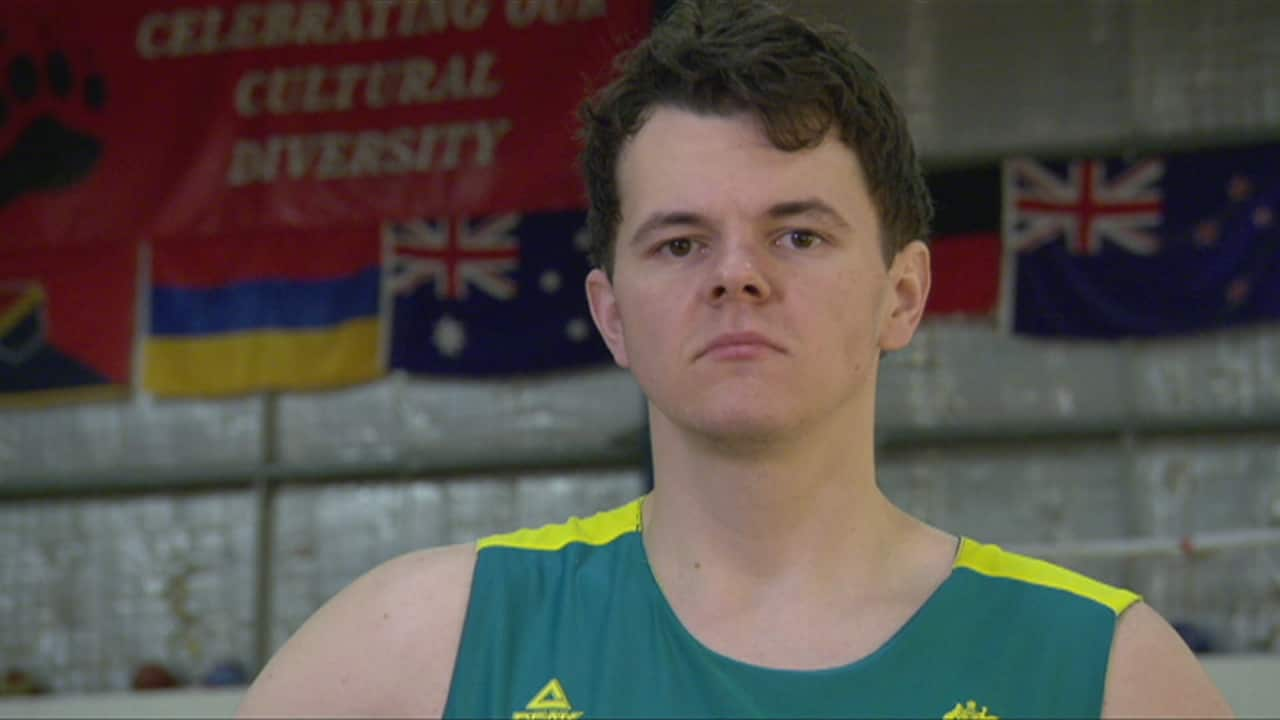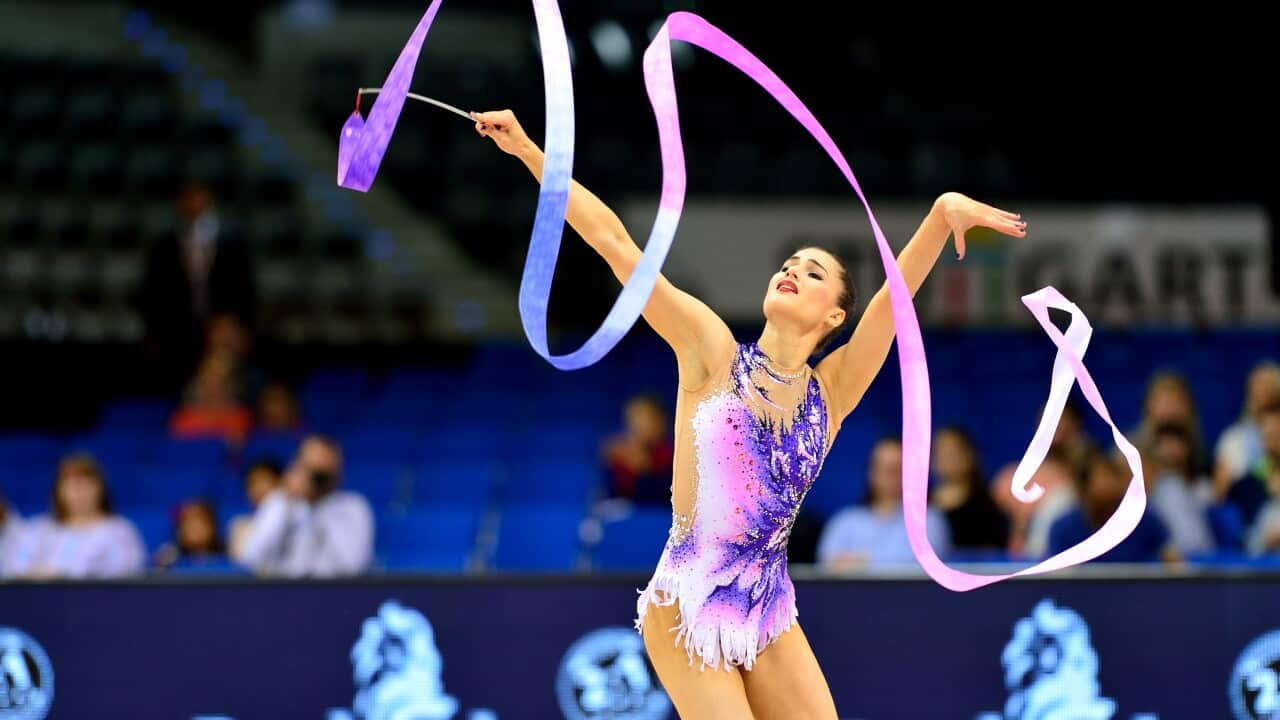Hannah Britton pushes through her 20th lap at swim training at an indoor pool in Melbourne's east.
But rather than receive loud orders from her coach, the directions are in hushed tones and hand signals, instructions written on a poolside whiteboard.
Hannah has been deaf since birth and communicates using sign language.
On dry land now, she explains that she's in her element when underwater.
"Swimming means everything to me. I've always been a water baby. I'm always the first person in the pool, and the last person out," Britton said.
Last year Hannah set a new Australian deaf record in the 50-metre breaststroke and next month she's off to the Deaflympics.
The tournament attracts over 3,000 athletes from more than 40 countries. It predates the Paralympics by 36 years and is recognised by the International Olympic Committee.
It's an important event for elite deaf athletes, who see themselves as members of a linguistic and cultural minority, not as disabled.
"I consider myself a role model for younger deaf people," Britton said.
"My swimming can encourage them to strive towards anything they dream of. I want them to feel confident in the opportunities for young deaf swimmers, including competing at the Deaflympics and maybe even the Olympics."
But it's a struggle for elite deaf athletes like Britton to keep their head above water.
They're not eligible for the Paralympics as there are no categories for deaf athletes without a disability.
And federal funding pales in comparison to Olympic and Paralympic funding, meaning many Deaflympians rely on donations to realise their dreams - or not at all.
"Last year I swam in the finals at the National Championships but I didn't have the opportunity to compete at a higher level due to a lack of funding," Britton said.
"My Paralympic and Olympic peers have access to training camps, superior facilities and overseas travel for competition, whereas I don't. Where is the equality in that?" Deaflympic basketballer Jordan Woolmer explains it's a paucity of funding not exclusive to swimming.
Deaflympic basketballer Jordan Woolmer explains it's a paucity of funding not exclusive to swimming.

Goannas basketballer Jordan Woolmer Source: SBS
"A lot of people in the deaf community feel there's not a lot of help from the hearing world and I think being able to show the deaf community that there are those role models and you can thrive in the outside world, I think that would help," he said.
Woolmer went deaf when he was seven but can hear with the use of hearing aids. He now plays with the Australian men's deaf basketball team, the Goannas.
He says his ambitions are worth just as much as any other elite athlete's.
But sports dreams are often built on funding, and Deaf Sports Australia - the body representing deaf athletes - receives an annual grant of just $85,000 from the Australian Sports Commission (ASC).
It's enough to pay one full-time staff member and take care of basic office expenses.
In the past, the ASC has also provided one-off grants to send teams to the Deaflympics, but now it's cut off that funding stream ahead of the Deaflympics in Turkey.
"We're only taking away a team of about 40, so when you're looking at that sort of money - what they've got, compared to what we need - it's almost like small change," Woolmer said.
"And that's the part that's the most frustrating about it, is that we know that the amount of money that we need to go away as significant as other sports."
Britton says, in a way, she feels like she's being discriminated against.
"It's as though the government is denying opportunities to elite deaf athletes," she said.
"It seems there is one rule for Paralympians and Olympians, and another for Deaflympians, and I don't understand why. At the end of the day, we are all Australians. It's not fair."
Irena Farinacci, from Deaf Sports Australia, says the lack of funding makes it difficult to encourage young deaf and hard of hearing participants to achieve their best through sport, particularly when some are already experiencing the effects of depression and isolation.
"Some deaf and hard of hearing people who face constant barriers often give up easily, think everyone is against them because they simply just want to fit in like everyone else," she said.
The ASC says previous Deaflympics grants were based on affordability and under a different investment model.
"The Australian Sports Commission introduced a new investment model for participation in 2016 to help determine funding decisions," the commission said in a statement.
"The Australian Sports Commission is pleased to be a long term supporter of Deaf Sports Australia and that annual funding, currently $85,000, continues to assist the organisation and its athletes."
But many deaf athletes still feel they're swimming against the tide.
Share







